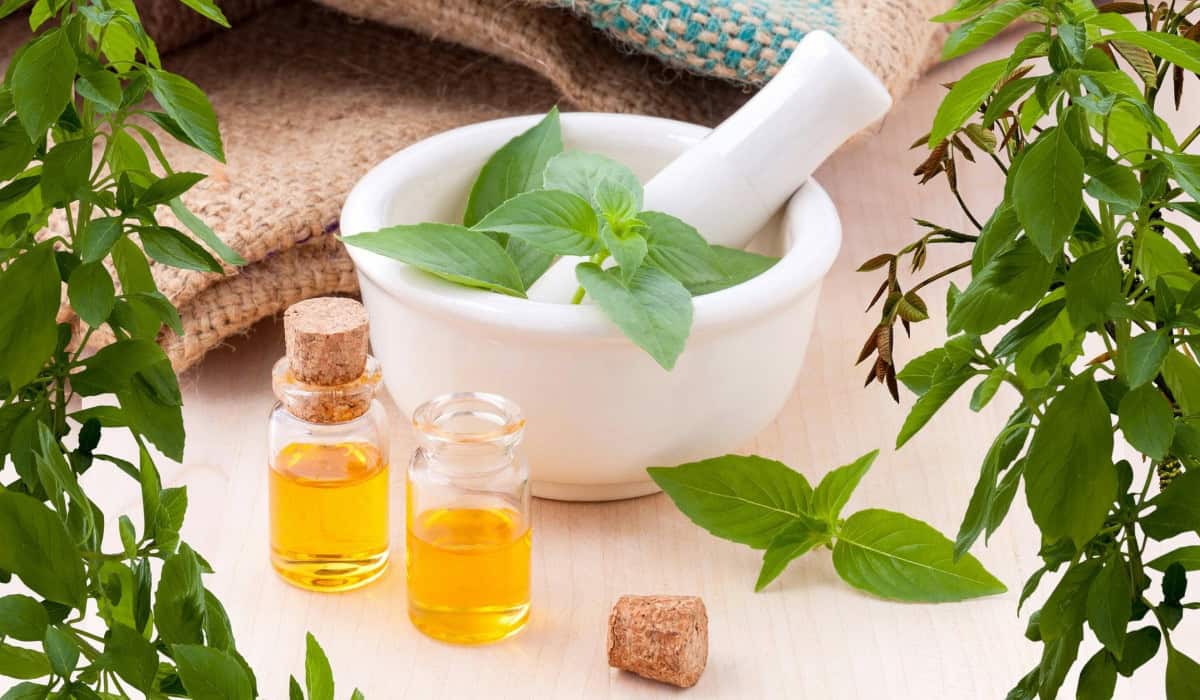What the Research Says – A Comprehensive Guide
Exploring herbal remedies for blood sugar balance unveils a world where nature meets science. With diabetes becoming increasingly common, understanding how natural supplements can support blood sugar regulation is crucial. Research reveals that certain herbs might enhance insulin sensitivity, help manage glucose metabolism, and reduce the risk of diabetes complications. This guide delves into what scientific studies say about these herbal solutions, providing a foundation for those looking to natural remedies for glycemic control.
Among the herbal contenders, milk thistle stands out for its potential in improving insulin sensitivity and reducing oxidative stress. Studies, including systematic reviews and meta-analyses of randomized controlled trials, highlight its effects on patients with type 2 diabetes mellitus. Incorporating dietary supplements like milk thistle or fenugreek seed powder, which are rich in dietary fiber, could offer a complementary approach to managing blood sugars and preventing type 2 diabetes.
Diabetic complications, such as cardiovascular disease, pose a significant risk. However, research suggests that certain herbal remedies can impact blood lipids and improve overall heart health, thereby offering a dual benefit. Over 12 weeks, interventions with these herbal supplements have shown promising results in glycemic control among type 2 diabetic patients. This underscores the potential of herbal remedies not just in managing diabetes but also in mitigating its associated risks.
Yet, the journey from traditional use to scientific validation is paved with rigorous testing and analysis. A systematic review and meta-analysis of randomized controlled trials provide a gold standard for evaluating the efficacy of these remedies. By examining the effects of silymarin, for instance, on glycemic control in type 2 diabetes, researchers can offer evidence-based recommendations. This guide aims to navigate through the maze of research findings, presenting you with a clear picture of how herbal remedies can play a role in the prevention and management of diabetes.
The Science Behind Herbal Solutions for Blood Sugar Regulation
Understanding the science behind herbal solutions for blood sugar regulation reveals a complex interaction between natural compounds and our body’s metabolic processes. Herbs like milk thistle and dietary supplements enhance insulin sensitivity and promote healthy glucose metabolism, addressing the root causes of diabetes. By combating oxidative stress, these natural remedies also help to reduce the body’s increased risk of insulin resistance, a key factor in the development of type 2 diabetes. Through improving insulin secretion and action, herbal remedies offer a promising avenue for supporting metabolic health and preventing diabetic complications.
Understanding Blood Sugar and Its Impact on Health
Blood sugar levels are a key indicator of metabolic health, influencing everything from energy levels to the risk of diabetes and cardiovascular disease. The systematic review and meta-analysis of randomized controlled trials underscore the importance of managing these levels through diet, lifestyle, and, increasingly, dietary supplements. Incorporating dietary fiber from natural sources can play a critical role in stabilizing blood glucose and reducing the likelihood of spikes and crashes. This foundational knowledge is essential for appreciating the role of nutrition and supplements in maintaining optimal health.
The Role of Herbal Remedies in Managing Blood Sugar Levels
Herbal remedies impact blood sugar levels by enhancing glucose metabolism, a critical process for maintaining energy and preventing diabetes. Dietary fiber, found in many herbal supplements, slows down sugar absorption in the bloodstream, helping to manage blood glucose levels more effectively. This natural approach to glycemic control can complement traditional diabetes management strategies, offering a holistic way to support metabolic health.
Moreover, by integrating these natural solutions into daily routines, individuals can leverage the power of plants to stabilize their blood sugar. Whether through teas, supplements, or whole foods, incorporating herbs rich in dietary fiber and other beneficial compounds can make a significant difference in managing diabetes and improving overall well-being.
A Deep Dive into Research Findings on Herbal Supplements
The American Diabetes Association acknowledges the potential of herbs or supplements in supporting blood sugar management. However, they emphasize the importance of scientific evidence in validating the efficacy of these herbal remedies. As research continues to evolve, it’s crucial to stay informed about which supplements have been rigorously tested and shown to offer genuine health benefits. This ongoing investigation into herbal solutions is vital for developing safe, effective strategies for diabetes care and prevention.
Table 1: Summary of Clinical Trials and Outcomes
In the landscape of herbal remedies for blood sugar balance, numerous clinical trials have shed light on their potential benefits and limitations. The outcomes of these studies vary, highlighting the importance of personalized approaches to supplement use. For instance, while one trial might demonstrate significant improvements in blood sugar control with a particular herb, another may show minimal effects. This variation underscores the necessity for further research and careful consideration when incorporating herbal remedies into diabetes management plans.
Moreover, these clinical trials often reveal insights into optimal dosages, potential side effects, and the populations most likely to benefit from specific supplements. By systematically reviewing and analyzing these studies, healthcare professionals and patients can make informed decisions about integrating herbal remedies into comprehensive diabetes care strategies.
Top Herbal Remedies for Blood Sugar Balance
Among the plethora of natural remedies, certain herbs stand out for their ability to positively influence glucose metabolism. These include well-known supplements like cinnamon, fenugreek, and bitter melon, each contributing uniquely to blood sugar regulation. By enhancing the body’s natural metabolic processes, these top herbal remedies offer promising support for individuals looking to maintain healthy blood sugar levels through natural means.
1. Aloe Vera – A Natural Approach to Glycemic Control
Aloe vera, recognized for its soothing properties, also harbors soluble fiber, making it an excellent natural approach to glycemic control. Through randomized clinical trials, aloe vera has been shown to support blood sugar management, acting as a beneficial supplement for those seeking natural remedies. Its role in enhancing glucose metabolism highlights the potential of aloe vera as a complementary treatment for diabetes.
The Mechanism of Aloe Vera in Blood Sugar Management
The mechanism through which aloe vera aids in blood sugar management lies in its impact on glucose metabolism. By facilitating the efficient use of glucose within the body, aloe vera helps to maintain stable blood sugar levels. This process is crucial for preventing spikes and dips that can lead to symptoms of hyperglycemia or hypoglycemia, respectively.
Furthermore, the soluble fiber in aloe vera contributes to a slower absorption of sugar into the bloodstream, providing a steady source of energy and preventing sudden increases in blood sugar. This dual action makes aloe vera an attractive option for those exploring herbal remedies to support their blood sugar balance.
2. Cinnamon – More Than Just a Spice
Cinnamon supplements have garnered attention for their potential to support blood glucose regulation, making cinnamon more than just a flavor enhancer. Its active components can influence metabolic pathways related to diabetes, offering an easy-to-integrate solution for those looking to manage their blood sugar levels naturally.
Cinnamon’s Influence on Blood Glucose Levels
Cinnamon’s influence on blood glucose levels is attributed to its ability to improve insulin sensitivity, allowing the body to use insulin more effectively. This, in turn, helps to lower blood sugar levels by facilitating the movement of glucose out of the bloodstream and into cells where it’s needed for energy.
In addition, cinnamon’s antioxidant properties can help reduce oxidative stress, a factor that contributes to insulin resistance. By integrating cinnamon supplements into a balanced diet, individuals may find a simple yet effective means of supporting their blood sugar regulation efforts.
3. Bitter Melon – Nature’s Answer to Blood Sugar Regulation
Bitter melon has long been used in traditional medicine as nature’s answer to blood sugar regulation. Its unique compounds mimic insulin’s effects, helping to lower blood sugar levels naturally. For those exploring herbal remedies for diabetes, bitter melon represents a promising option with a history of use in various cultures.
How Bitter Melon Affects Glucose Metabolism
Bitter melon’s impact on glucose metabolism is significant, as it helps to increase glucose uptake and improve glucose tolerance. This action is crucial for managing blood sugar levels, particularly for individuals with diabetes. By enhancing the body’s natural ability to regulate glucose, bitter melon can be an effective part of a holistic approach to diabetes management.
Moreover, the consumption of bitter melon has been associated with improved cholesterol levels, offering additional benefits for cardiovascular health. When combined with other lifestyle changes, such as a healthy diet and regular exercise, bitter melon can contribute to overall metabolic health and well-being.
4. Alpha-Lipoic Acid (ALA) – A Powerful Antioxidant for Blood Sugar Support
Alpha-Lipoic Acid (ALA) stands out as a potent antioxidant, which plays a crucial role in managing blood sugar levels. Research has shown that ALA can influence blood sugar by improving insulin sensitivity, which is essential for those managing diabetes. Furthermore, ALA has been associated with positive effects on body weight and triglyceride levels, both of which are important factors in diabetes management. Studies suggest that incorporating ALA into your diet or as a supplement could significantly decrease these markers, offering a promising option for blood sugar regulation.
Exploring the Effects of ALA on Insulin Sensitivity
ALA enhances the body’s ability to use insulin efficiently, which is vital for controlling blood sugar levels. By improving insulin sensitivity, ALA helps in transporting sugar from the bloodstream into the cells, where it’s used for energy. This process is crucial for maintaining healthy blood sugar levels and preventing spikes that can occur after meals. The antioxidant properties of ALA also contribute to reducing oxidative stress, which is a common concern in individuals with high blood sugar.
Moreover, the role of ALA in weight management cannot be overlooked. By aiding in the reduction of body weight and triglyceride levels, ALA not only supports blood sugar balance but also contributes to overall cardiovascular health. This dual action makes ALA a valuable component of diabetes management and prevention strategies. Its benefits extend beyond blood sugar regulation, offering holistic support for individuals looking to maintain a healthy lifestyle.
Expanding the List: Other Noteworthy Herbal Remedies
While ALA, cinnamon, and bitter melon are prominent for their blood sugar-balancing effects, the realm of herbal remedies offers even more options. Gymnema, fenugreek, and other natural supplements have shown promise in research for their ability to manage glucose levels, enhance insulin sensitivity, and support overall diabetes management. These herbs, each with unique properties, provide a wide range of options for individuals seeking natural ways to support their blood sugar goals.
5. Gymnema – The Sugar Destroyer
Gymnema Sylvestre, known as the “Sugar Destroyer,” has a long history in traditional medicine for its role in managing diabetes. The active component, Gymnemic acid, found in the leaf extract, is thought to help reduce sugar absorption in the intestine. In studies involving diabetic rats, Gymnema leaf extract was shown to complement conventional treatment methods, leading to improved blood sugar control. This herb offers a natural approach to complement diabetes management strategies, highlighting its potential in reducing sugar cravings and supporting blood sugar balance.
Gymnema’s Role in Reducing Sugar Cravings and Blood Sugar
The unique ability of Gymnema to reduce sugar absorption and cravings can be a game-changer for individuals striving to manage their blood sugar levels. By blocking the sugar receptors on the tongue, Gymnema leaf extract can temporarily diminish the taste of sugar, helping to curb sugar cravings. This mechanism supports healthier eating habits and can be particularly beneficial for those looking to control their blood sugar through diet.
Furthermore, the use of Gymnema in managing blood sugar is supported by its influence on insulin secretion and pancreatic health. By promoting insulin production and regeneration of pancreas cells, Gymnema assists in improving blood glucose control naturally. Its role in enhancing the body’s ability to utilize insulin effectively complements conventional treatment, making Gymnema a valuable addition to a diabetes management plan.
6. Fenugreek – A Versatile Herb for Glycemic Control
Fenugreek seeds are not only a culinary spice but also a powerful herb for managing diabetes. Rich in soluble fiber, fenugreek seeds slow down the absorption of carbohydrates, thereby reducing fasting blood glucose levels. The seeds have been studied for their antioxidant and anti-inflammatory properties, which are beneficial in diabetes management. Although fenugreek has shown promise in helping to treat diabetes by improving insulin levels and glucose tolerance, further research is needed to fully understand its efficacy and mechanism.
The Scientific Basis of Fenugreek’s Benefits for Diabetes
Fenugreek seeds exert their positive effect on blood sugar by enhancing insulin secretion and sensitivity, which are crucial for glycemic control. The soluble fiber in fenugreek aids in slowing down the digestion and absorption of carbohydrates, leading to a more gradual increase in blood sugar levels after meals. This mechanism is particularly beneficial for managing postprandial blood glucose spikes, a common challenge in diabetes management.
In addition to its effects on insulin and blood glucose levels, fenugreek’s antioxidant and anti-inflammatory properties contribute to its therapeutic potential. These properties may help mitigate oxidative stress and inflammation associated with diabetes, further supporting overall health. While fenugreek is a promising herb for diabetes management, it’s important to note that more research is needed to fully elucidate its benefits and how it can be best utilized in diabetes care.
Navigating the Use of Herbal Supplements Safely
While herbal supplements offer a natural approach to managing blood sugar levels, it’s crucial to use them safely and in conjunction with conventional diabetes care. Understanding the potential interactions and side effects of these supplements is paramount. As complementary medicine, they should not replace prescribed medications but rather be used to support overall diabetes management strategies. Consulting with healthcare professionals before starting any new supplement is essential to ensure they fit into your diabetes care plan without adverse effects.
Furthermore, the quality and dosage of herbal supplements can vary widely. Choosing high-quality, standardized products and following recommended dosages are key steps in using these remedies effectively and safely. Monitoring your blood sugar levels closely when incorporating herbal supplements into your regimen is also important, as they can alter glucose levels, necessitating adjustments to your conventional diabetes treatments.
Understanding Potential Interactions and Side Effects
Herbal supplements, while beneficial, can interact with conventional diabetes medications and other treatments. These interactions may enhance or diminish the effectiveness of your medications, leading to unexpected changes in blood sugar levels. Being aware of potential side effects, such as hypoglycemia or gastrointestinal discomfort, is also crucial. Open communication with your healthcare provider about any herbal remedies you’re considering allows for personalized advice and adjustments to your treatment plan to ensure safety and efficacy.
Guidelines for Incorporating Herbal Remedies into Your Diabetes Management Plan
Incorporating herbal remedies into your diabetes management plan requires a thoughtful approach. Start by discussing your interest in herbal supplements with your healthcare provider, who can provide guidance based on your individual health needs and current treatments. It’s important to approach herbal remedies as a complement to, not a replacement for, conventional diabetes care. This perspective ensures that your overall treatment plan remains balanced and effective.
When adding herbal supplements to your regimen, begin with one supplement at a time to monitor its effects on your blood sugar levels and overall health. Keeping a detailed log of your blood sugar readings, dietary intake, and any changes in how you feel can help you and your healthcare provider understand the impact of the herbal remedy. This careful monitoring and open dialogue ensure that your diabetes management plan remains safe, effective, and tailored to your unique needs.
Final Thoughts on Herbal Remedies for Blood Sugar Balance
As you consider the journey towards managing diabetes or prediabetes, it’s clear that herbal remedies play a significant role in glycemic control. Notably, the effects of cinnamon in reducing blood glucose levels and improving lipid profiles offer a promising complement to traditional diabetes management strategies. Meanwhile, the potential for increased insulin production and enhanced sensitivity of insulin receptors highlights the intricate ways in which these natural solutions can support the health of adults with diabetes. It’s fascinating to see how the digestion of carbohydrates and the function of beta cells in the pancreas are influenced, offering a multi-faceted approach to treatment.
Understanding the balance between fasting blood glucose and hemoglobin A1C levels is crucial for anyone navigating the complexities of diabetes treatment. Herbal remedies, when medically reviewed and properly integrated into your diabetes management plan, can offer a supportive role in achieving better control in patients with type 2 diabetes. However, it’s essential to remember that these natural solutions should complement, not replace, the advice and treatment plans provided by healthcare professionals. Engaging in discussions about herbal supplements with your doctor can help ensure that your approach to managing 1 and type 2 diabetes is both safe and effective.
Finally, the journey towards balanced blood sugar levels is personal and varies from one individual to another. Whether dealing with the challenges of insulin resistance or seeking to improve your overall health profile, incorporating herbal remedies offers a natural pathway that could potentially enhance your quality of life. With a mindful approach to their use, including considerations for potential interactions and side effects, these natural allies can be a valuable addition to your health regimen. As research continues to evolve, so too will our understanding of how best to harness these ancient remedies for modern health challenges.






